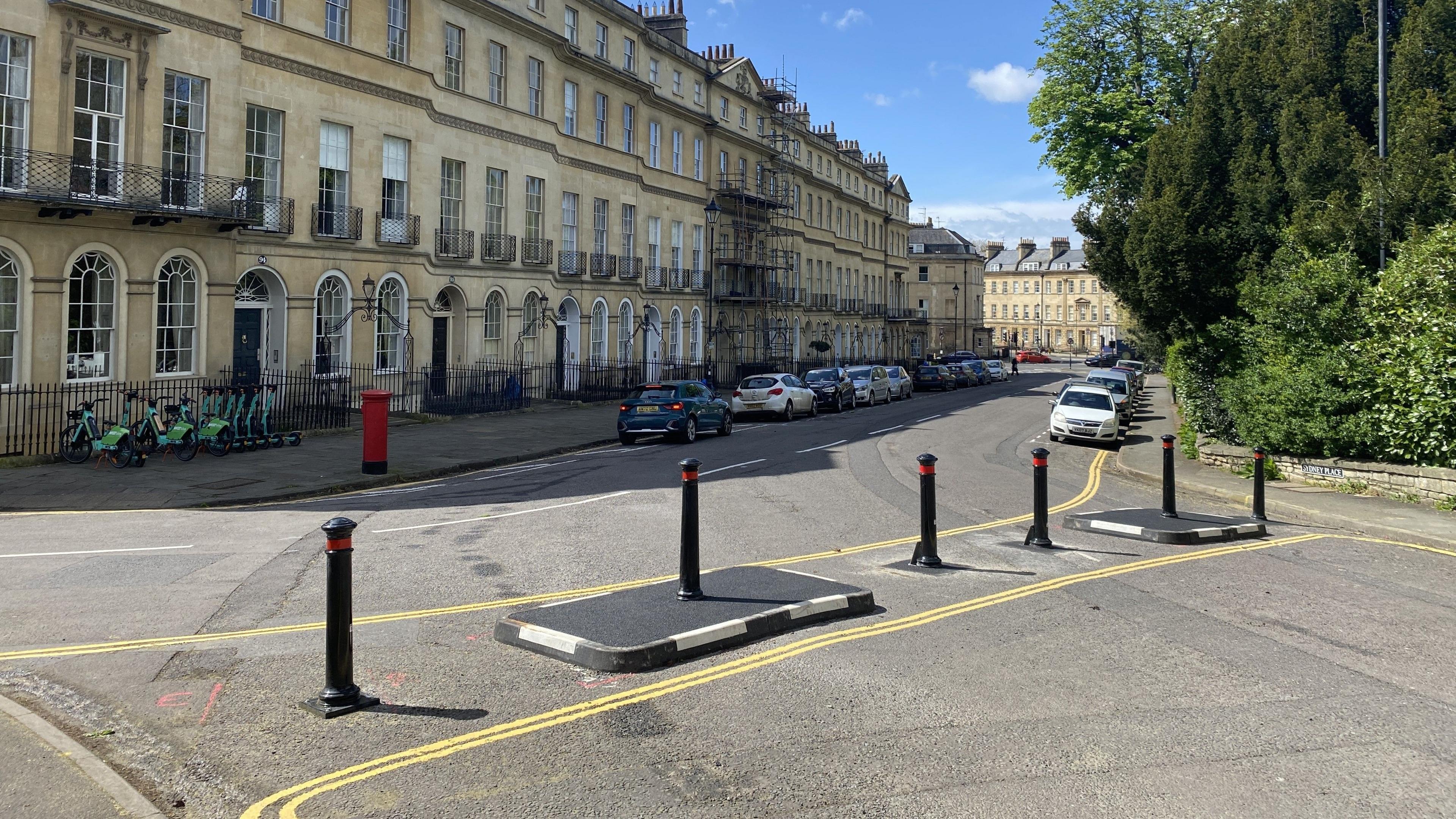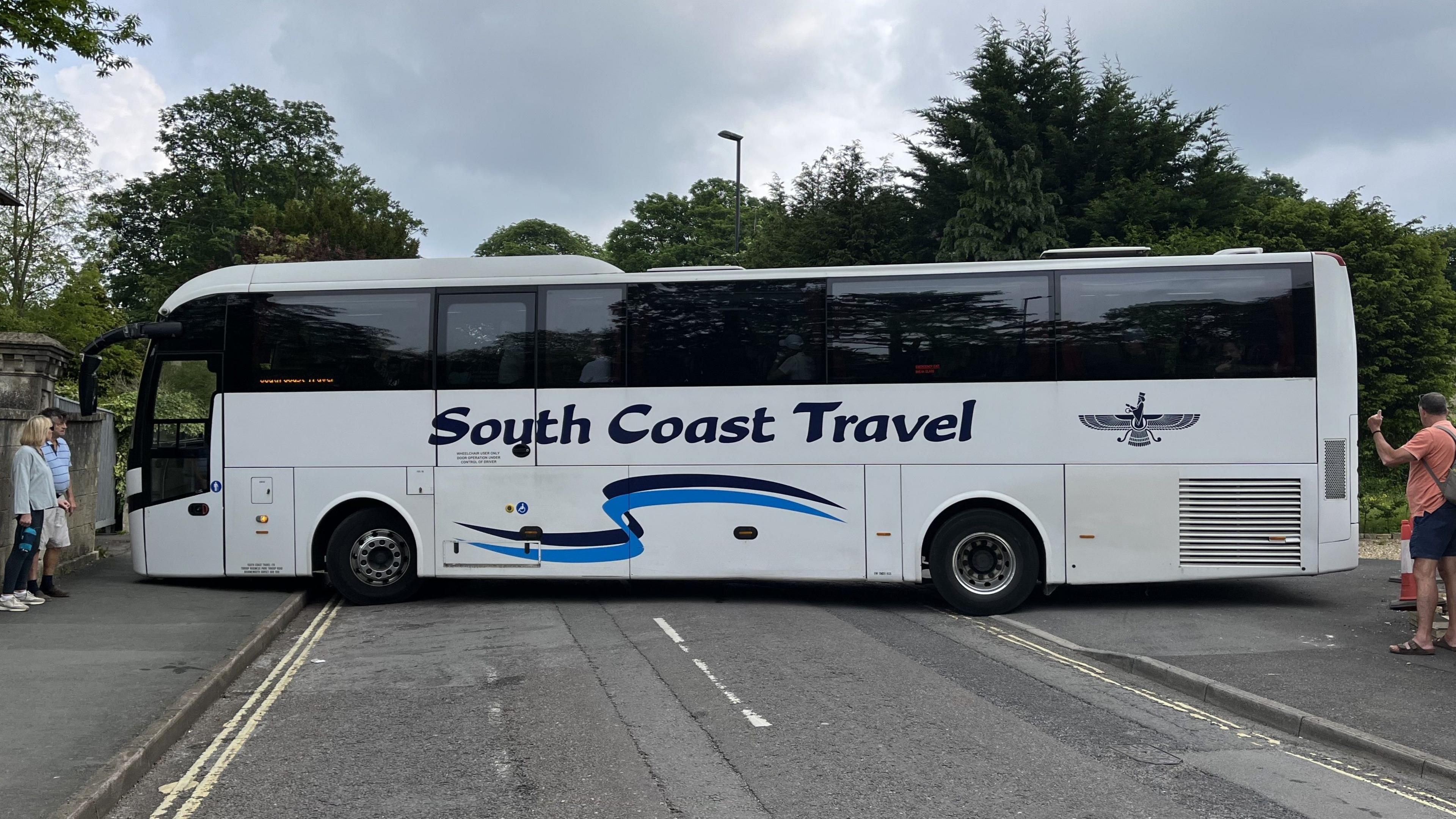Controversial traffic bollards given final sign off

The bollards between Sydney Road and New Sydney Place were installed in April 2024 on a trial basis but will now become permanent
- Published
A controversial row of bollards that block traffic in part of a city have been given the final sign off to become permanent.
The bollards between Sydney Road and New Sydney Place were installed on a trial basis in April 2024 as part of Bath and North East Somerset Council's scheme to cut traffic and make it safer for cyclists and pedestrians.
The Sydney Road and New Sydney Place Liveable Neighbourhood has had strong support from nearby residents but major opposition from other parts of Bath.
People on the neighbouring Beckford Road say that closing Sydney Road has turned their road into an "unliveable neighbourhood" and made it more dangerous because of congestion.

A coach turning at the Sydney Road and New Sydney Place bollards
The council's cabinet member for sustainable transport strategy Joel Hirst said: "I want to thank everyone who has taken part in the many consultations on this scheme."
Mr Hirst added that the full consultation and monitoring data is on the council website, external.
The total cost of the scheme is £833,000, funded by the government's "city region sustainable transport settlement".
Temporary kerbs will now be replaced with permanent ones and there will be changes to the North Road junction to improve access for cyclists. A new crossing is also planned for Sydney Place.
Liveable neighbourhood scheme to be made permanent
- Published8 February
Liveable neighbourhoods 'causing delays' on bus routes
- Published1 November 2024
Traffic trials on hold as locals seek injunction
- Published5 August 2024
Get in touch
Tell us which stories we should cover in Somerset
Follow BBC Somerset on Facebook, external and X, external. Send your story ideas to us on email or via WhatsApp on 0800 313 4630.